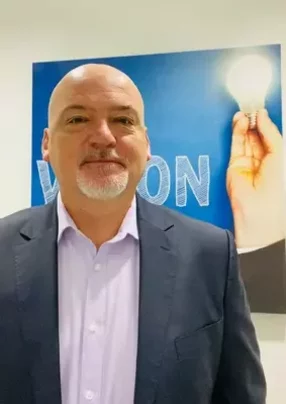
Maciej Stawicki
Global Manufacturing Vice President of Procter & Gamble
For nearly three decades Maciej Stawicki, Global Manufacturing Vice President of Procter & Gamble has been at the sharp end of the global supply chain.
Following a classic manufacturing career path Stawicki started his career 28 years ago as the first manager of a new plant in Warsaw, Poland and now oversees the ‘operational excellence’ of P&G’s Integrated Work Systems (IWS).
Over the last year, IWS has continued to be a key enabler in delivering close to a billion dollars of total delivered cost savings. IWS follows two primary principles: the power of zero defects or losses and the power of 100 per cent Total Employer Ownership.
“Not only did we have to operate our facilities, distribution centres and the plants with much lower staffing, but the demand in a number of our categories was much higher versus pre-pandemic - despite that we were able to deliver the service with excellence,” he said.
“P&G has multiple decades of mastery in manufacturing, supply chain excellence, and operations,” said Stawicki’s whose career has naturally evolved from process engineer, line management responsibility to operating department manager, operation manager and plant manager.
These roles have taken him around the world from Russia to Saudia Arabia and Germany but for the past eight years he has been based at P&G’s offices in Geneva, Switzerland.
Reflecting on his leadership style, Stawicki said he is people-focused and wants to bring the best out of his team.
“My leadership style starts from the fundamental belief that every single individual wants to be great. My whole style is built on an underlying trust that people want to be great and giving people autonomy versus micromanaging specific tasks. People’s capabilities are much higher than usually we think and by giving them freedom and space to act enables the organisation to deliver their goals,” he said.
“I'm very transparent and direct in terms of my communication, which is usually appreciated by the organisation.
Looking back at how the consumer has changed during his career journey, Stawicki said there was more focus today on more product choices, sustainability, overall consumer experience and sensitivity to defects - which is why IWS is critical in building trust in our brands.
“Consumers are looking for a personalised service versus the mass product that has been historically available on the market. We also see the transition from brick-and-mortar to e-commerce digital customers along with the emergence of new business models like the Direct Consumer Subscription.
“Moving to manufacturing Industry 4.0, with the Internet of Things, cloud computing, advanced analytics capabilities, robotics and automation, will have a major impact on the landscape. Suppliers will also change enormously because, in my view, they will play a much more critical role in speed of innovation in today’s world.”
Stawicki said a leader he admires for his vision is Elon Musk of SpaceX.
“I'm a fan of a certain leadership model which is built on 5E’s (Envision, Engage, Energise, Enable and Execute) where the first one is an ability to recognise future coming trends and connecting them into a breakthrough idea. If I look back over the last year, Elon Musk comes to my mind as an example of an extremely visionary person,” he said.
Read the full story HERE
- Deloitte: The Key to Optimising Holiday Supply ChainsProcurement & Supply Chain
- McKinsey: How Manufacturers can Ensure Future ProductivityProcurement & Supply Chain
- ABB: 2025 Will Be A Balancing Act for Metals ManufacturersProduction & Operations
- PUMA Embraces AutoStore's Autonomous Fulfillment SolutionsProcurement & Supply Chain

